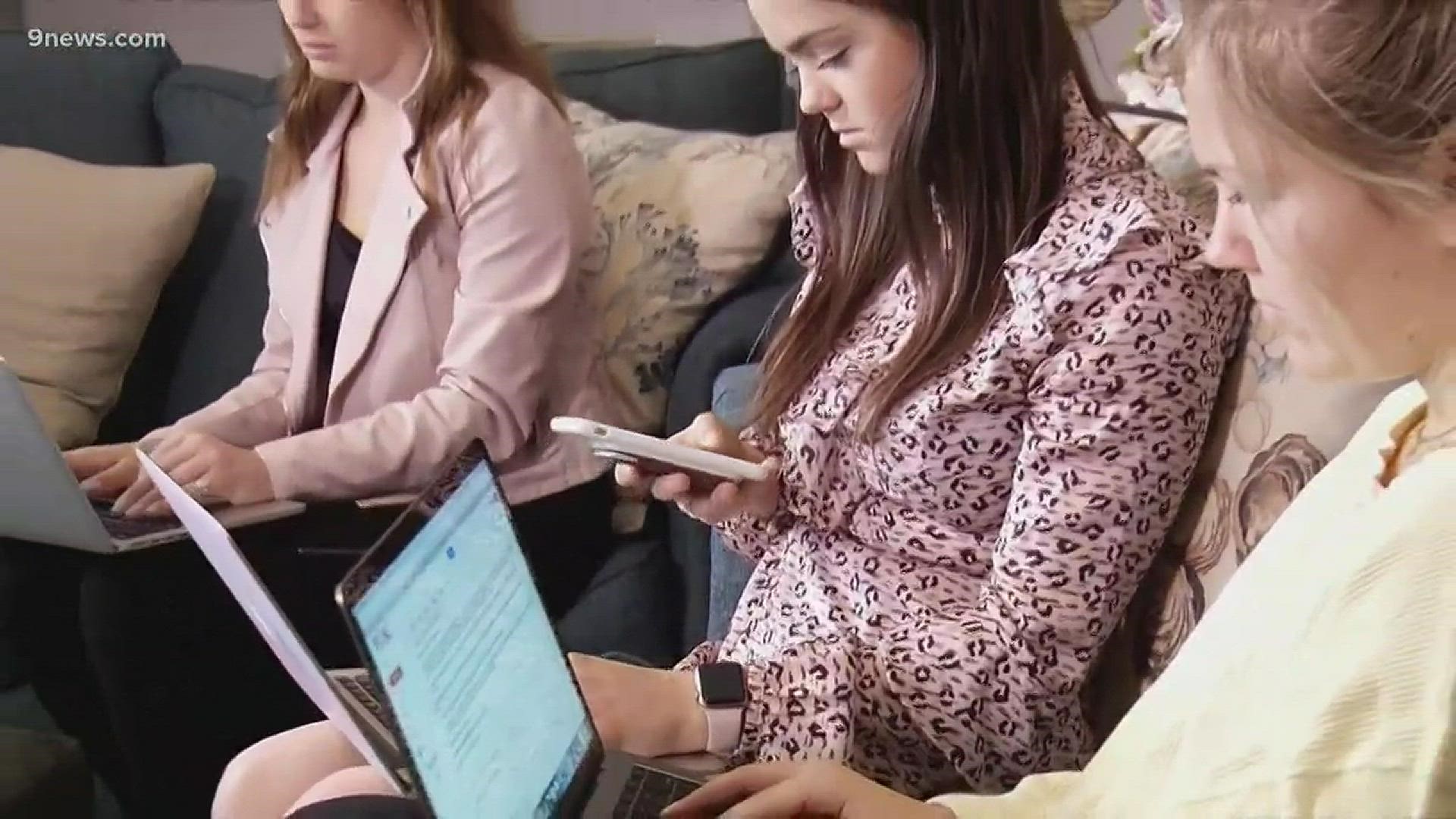DENVER — A new study from the U.K. examined the link between social media use and depression-type symptoms in almost 11,000 14-year-olds. Researchers found that girls were two times more likely to be depressed than boys, primarily because of cyberbullying and harassment issues.
Why are the results of this study so surprising?
Almost 40 percent of the girls and 20 percent of the 14-year-old boys in this study were using social media for more than three hours per day. Both the girls and boys in this study reported higher rates of depression, online harassment, cyberbullying, and poor sleep because of their social media use.
Girls were also more likely to have issues with self-esteem, body image and their appearance as compared to boys. The more social media use, the stronger the link to depression-type symptoms.
How are social media, poor sleep and depression related?
Social media use at night can disrupt the natural circadian rhythm and melatonin levels which are part of the sleep cycle. Kids may sleep with their phones next to them at night. This can wake them up throughout the night with texts and messages coming in, make them feel like they are missing out if they go to bed.
Or kids may sleep poorly because they are worried or anxious about online harassment or cyberbullying. Disruptions in sleep, both quantity and quality, can also make kids more prone to depression-type symptoms. Kids brains are still developing at this age.
Lack of sleep and depression in youth can cause long-term issues which can carry over into adulthood.
Why are girls more prone to body image, self-esteem and depression symptoms than boys?
Social media can put unrealistic expectations on kids about what they should look like, how they should dress or act. Girls are more likely to have unrealistic expectations about what they “should” look like and can be judged on appearances more than males.
With online harassment and cyberbullying on the rise, kids are more commonly being teased, ridiculed or even bullied. This can lead to issues with poor body image, being unhappy with their body weight, and lower self-esteem. This “pathway” may cause kids to become depressed.
What are some practical things parents can do right away to decrease the negative impacts of social media?
- Buy an alarm clock. Keep phones downstairs or in another room at nighttime. This may help decrease sleep disruptions at night.
- Limit social media use to less than 1-2 hours per day. Kids who were using social media more often throughout the day were more likely to have depression-type symptoms. Put limits on screen time.
- Limit phone use within 1-2 hours before going to bed at night. Ideally, no phones after dinner. This may help kids focus on schoolwork, and less on the “drama” which can be created online and through social media.
- Use filtering software if needed. There is software available for parents to monitor time online and general computer activity. Parents can also filter content and monitor social media use and chats.
What are some of the long-term social media lessons parents should teach kids?
- Teach them the difference between right and wrong. This may include discussions about online harassment, sexting, cyberbullying, and not taking, sending or forwarding inappropriate pictures.
- Know the symptoms of depression. Kids who are sleeping too much/too little, eating too much or too little, anxious, sad, not connecting well with others, or who express suicidal thoughts need to be evaluated by a mental health professional immediately.
- Encourage face-to-face communication. Make sure your child feels comfortable talking with you about her issues and concerns. And stress the importance of developing relationships and friendships in person, not over just phones or online.
- “Online reputations” can be forever. It is important to teach kids early about their digital footprint and its effects on future employment, admission to school and even personal relationships. Nothing is truly “erased” from the internet. Think twice before posting comments, pictures, or sending texts and emails. Think about what would happen if something were to be forwarded without your consent.
- Reinforce positive and realistic body-images. Debunk stereotypes about appearance, especially with girls. Discuss how cultural and beauty norms are different. And reinforce positive behaviors and build up self-esteem in kids.
Social media can have a positive impact on kids’ lives when used appropriately to facilitate communication and social activities.
With these tips, both in the short and long-term, parents can help their kids use social media in a way which enriches, and does not detract from, their kids’ lives.
Follow 9NEWS Medical Expert Dr. Comilla Sasson on Facebook and Twitter. Have a medical question or health topic idea? Email Dr. Comilla at c.sasson@9news.com
SUGGESTED VIDEOS | Science is cool

